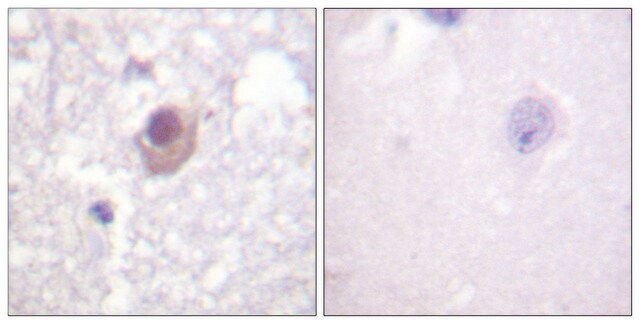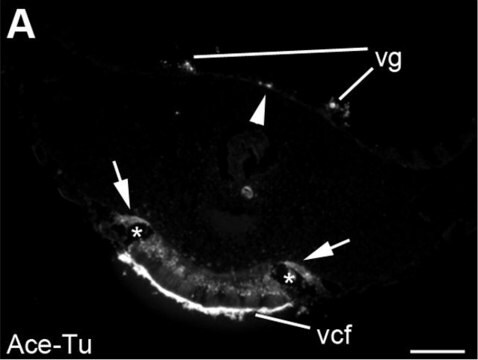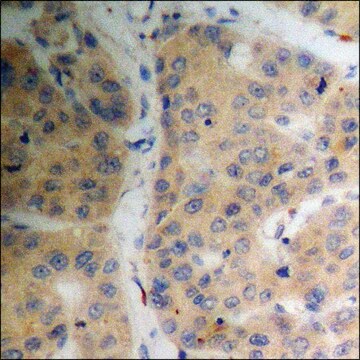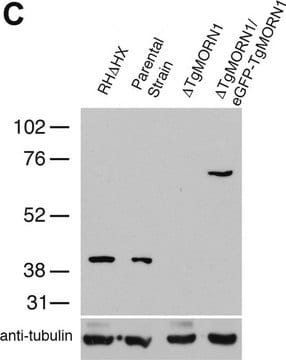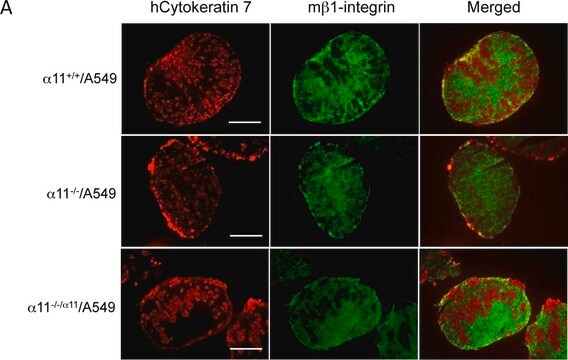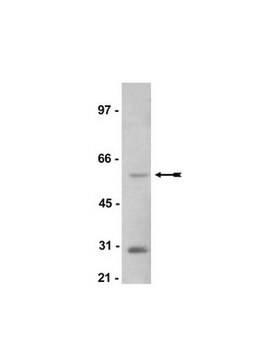S5188
Anti-SGK antibody produced in rabbit
buffered aqueous solution, IgG fraction of antiserum
Sinônimo(s):
Anti-SGK
About This Item
Produtos recomendados
fonte biológica
rabbit
conjugado
unconjugated
forma do anticorpo
IgG fraction of antiserum
tipo de produto de anticorpo
primary antibodies
clone
polyclonal
forma
buffered aqueous solution
peso molecular
antigen 50 kDa
reatividade de espécies
human
técnica(s)
indirect immunofluorescence: 1:2,000 using 3% paraformaldehyde-fixed, 0.5% Triton X-100 treated human epidermal carcinoma A431cell line
microarray: suitable
western blot: 1:2,000 using whole cell extract of the human epidermal carcinoma A431 cell line
nº de adesão UniProt
Condições de expedição
dry ice
temperatura de armazenamento
−20°C
modificação pós-traducional do alvo
unmodified
Informações sobre genes
human ... SGK1(6446)
Descrição geral
Aplicação
- immunoprecipitation
- western blotting
- immunofluorescence
Ações bioquímicas/fisiológicas
forma física
Exoneração de responsabilidade
Not finding the right product?
Try our Ferramenta de seleção de produtos.
Código de classe de armazenamento
10 - Combustible liquids
Classe de risco de água (WGK)
WGK 3
Ponto de fulgor (°F)
Not applicable
Ponto de fulgor (°C)
Not applicable
Certificados de análise (COA)
Busque Certificados de análise (COA) digitando o Número do Lote do produto. Os números de lote e remessa podem ser encontrados no rótulo de um produto após a palavra “Lot” ou “Batch”.
Já possui este produto?
Encontre a documentação dos produtos que você adquiriu recentemente na biblioteca de documentos.
Nossa equipe de cientistas tem experiência em todas as áreas de pesquisa, incluindo Life Sciences, ciência de materiais, síntese química, cromatografia, química analítica e muitas outras.
Entre em contato com a assistência técnica